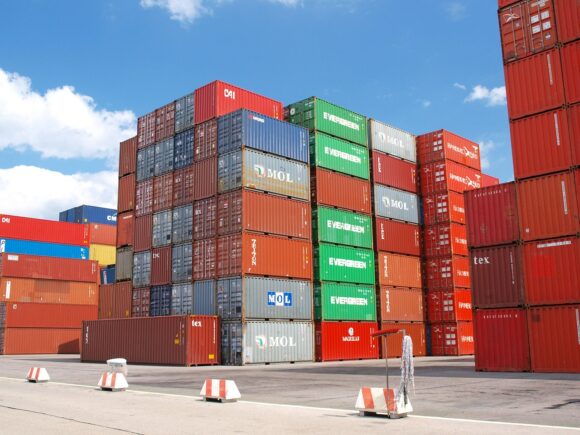By Dr. Kai-Ann Skeete
Approximately nearly 18 months since the Caribbean Community (CARICOM) Member States were disrupted by the Covid-19 Pandemic, we can now look back and examine the lessons learnt from surviving the catastrophic human, social, economic, and political losses. As we commence our Christmas preparations, there is one more lesson we need to examine. As consumers of food, clothing, technology and other essentials which we import predominantly from the United States of the America (USA), we must acknowledge that things have now significantly changed and will impact our extra-regional purchases. The US prices of these goods have increased substantially due to several factors associated with global supply chains and shipping.
You may ask what does this have to do with our existence here in the Caribbean? I would argue, it has to do with everything we require because we do not produce the gadgets, tools, equipment, household items, toys and processed foods that we consume on a daily basis. Instead, they arrive at our seaports aboard massive cargo ships holding hundreds of 40 feet (12 metre) cargo containers stacked 10 to 12 containers vertically sometimes resembling my toddler’s Lego bricks from a distance.
Unfortunately, the usual calm and pristine Caribbean Sea will be faced with further turbulent waters as the container ships will not laden the water and sail effortlessly into our regional ports but instead, there will be heralded by significant delays and cancellation of orders. Christmas barrels, decorations, household items, food and toys will not arrive at their intended destinations in time for the start of the season. Afterall, popular US retailers Walmart, Target, Costco, Ikea, Bed Bath and Beyond (BBD) and Dollar Tree to name a few have reported the impending delays and battles with the delayed shipments stuck at Chokepoints across the country.
In a world where crisis managers troubleshoot on a daily basis, the apparent solution is the investment into chartering cargo vessels to deliver containers from Asia to the US terminals. Afterall, the goods within container ships stuck outside major Ports is of little value to the retailers unless they are offloaded and processed in a timely fashion which would allow the retailers to recoup losses and earn a profit during the upcoming holiday season.
According to a Senior Director at Gartner, “we’ve seen disruption on top of disruption on top of disruption and we’re not able to mend the networks before the next disruption comes.” Delays have been caused by several occurrences; a representative from Dollar Tree Inc indicated that one cargo ship was delayed for 2 months due to a crew member testing positive for Covid-19. Let us not forget the extreme weather patterns, equipment shortages and unpredictable US-Chinese trade relations which immediately impact the global supply chains responsible for everything we use from food and fashion to drinks and diapers. On top of these challenges, the company budgets for container shipping costs have not doubled but in some instances they have jumped to 150 per cent increase as in the case of BBD in the US.
Now let it be known that the world witnessed for the first time ever what Ferreira (2021) has labelled “Containergeddon” of at least 60 container ships filled with items valued billions of dollars stuck outside of major US seaports of Los Angeles and Long Beach (together comprising US entry points for 40% of imported goods) waiting to unload for days on end, which is a major disruption unlike pre-pandemic times where there was hardly any backlog of the major ships. So, what is the solution?
Walmart repurposed and chartered a former dry bulk cargo ship amongst other vessels with the aim of “bypassing log-jammed ports and secure scarce ship space.” The solution of chartering the ships can speed up the delivery of critical goods in a timely fashion to the mainland US. In the spirit of innovation and due to the unavailability of traditional 40 foot containers, Walmart started to utilise 53 foot containers that are mainly used inland in the US. These large containers require specialised cranes to assist with the off-loading and become more labour intense. But the chartering of these ships is not a cheap solution since a monthly cargo charter costs major US retailers between US$1 to 2 million and rising in cost dependent on the number of rented containers which could range between 500 and 1500 containers monthly.
Having read the state of play in the US, the reality hits home to us in the Caribbean because we purchase hundreds of items from the popular US retailers as well as online from Amazon. We must now confront the reality that their challenges will exacerbate the challenges confronting our local retail industries and inevitably, local consumers. Our solutions will not be as immediate but the time has now come for us in the Caribbean to think about expanding our seaports to achieve greater efficiency and increased movement to ensure there is space for the storage of containers, consulting with the trade unions to ensure that port operations eventually become 24/7 similar to the Asian ports of origins. In addition, we must start to think and act as a collective where we source products from our regional and even indigenous markets. Furthermore, as a region, we should explore chartered – joint cargo shipments directly from Asian to Kingston Wharves and then disseminated across the region. These are but a few thoughts to chart our path forward.
Dr. Kai-Ann Skeete is committed to solving regional problems as the Trade Research Fellow of the Shridath Ramphal Centre.


